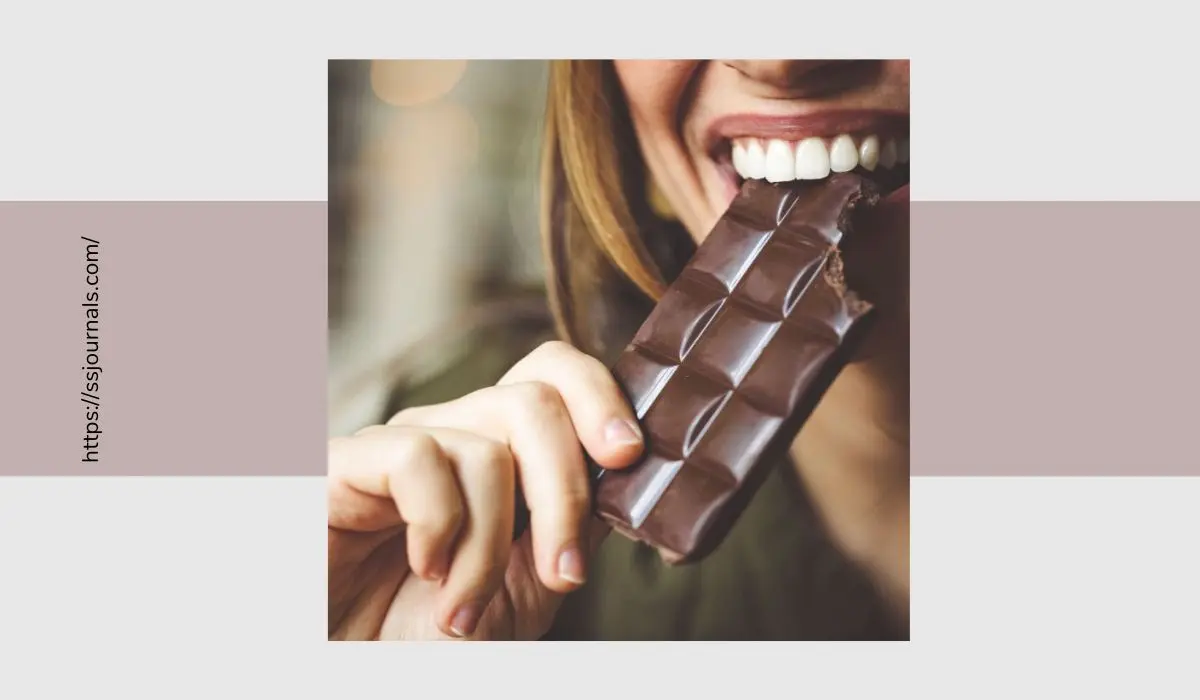Chocolate is a beloved indulgence for many people across the world. The sweet, creamy confection makes a perfect dessert or snack. However, some people report experiencing constipation after eating chocolate. Is there any truth to the claim that chocolate causes or worsens constipation?
Read on to learn more about the real effects of chocolate on digestion and bowel movements.
Chocolate And Constipation
Constipation refers to infrequent, difficult, or incomplete bowel movements that occur less than 3 times per week. Symptoms include passing hard, dry stools, straining during defecation, bloating, discomfort, and a feeling the bowels do not fully empty.

Common causes of constipation include:
➜ Insufficient fluid intake
➜ Inadequate fiber consumption
➜ Lack of exercise
➜ Various medications
➜ Neurological disorders
While many people blame chocolate for causing their constipation, the scientific evidence for this relationship is quite weak. Let’s analyze the potential ways chocolate could influence bowel habits.
Does Cocoa Cause Constipation?
Cocoa is the key ingredient that gives chocolate its distinctive taste and health benefits. Cocoa powder contains antioxidant compounds called flavonoids that may aid digestion.
- Cocoa can provide a small amount of fiber, around 1.5 grams per ounce. Fiber helps add bulk to stools.
- Flavonoids like catechins may stimulate gastric juices to improve digestion and gut motility.
- Theobromine, a stimulant in chocolate, may serve as a very mild laxative at higher doses.
- However, research has not found a significant link between consuming cocoa and constipation relief or prevention.
Pure unsweetened cocoa powder is unlikely to exacerbate or relieve constipation without the additives found in chocolate products.
Effects Of Chocolate Fat Content On Bowel Movements
The high saturated fat content of chocolate could theoretically cause constipation.
- Milk chocolate contains 14 grams of fat per 3-ounce serving, mostly from cocoa butter.
- Dark chocolate with 70-85% cocoa contains up to 10 grams of fat per ounce.
- Fat can slow digestion, which may prolong GI transit time and result in harder stools.
- However, moderate fat intake alone does not commonly cause constipation based on research.
Overall, chocolate’s fat content does not appear likely to have major effects on bowel movements or constipation risk based on available evidence.
Impact Of Added Sugars In Chocolate
The added sugars in chocolate like sucrose, corn syrup, and other sweeteners may contribute to constipation:
- Milk chocolate contains up to 26 grams of added sugar per 3-ounce serving.
- High-sugar foods can pull water into the intestinal lumen through osmosis.
- This may contribute to dehydration and harder, drier stools that are difficult to pass.
- Sugary foods also lack the beneficial fiber that would help improve stool bulk and consistency.
Minimizing added sugars by choosing dark chocolate varieties may help reduce the likelihood of constipation.
Are Chocolate Allergies Linked to Constipation?
Some people may be sensitive or allergic to components of chocolate:
- Cocoa, milk, soy lecithin, nuts, and corn syrup in chocolate can cause food allergy symptoms in sensitive people.
- Allergic reactions can include digestive upset like bloating, nausea, gas, diarrhea, or constipation.
- Removing the allergenic food from the diet generally resolves the symptoms.
If you suspect chocolate allergy, identify the ingredient your body reacts to and avoid it to relieve discomfort.
Does Chocolate Exacerbate IBS?
Chocolate is often cited as a trigger for irritable bowel syndrome (IBS) flares. However, studies show mixed results:
- One study found no correlation between chocolate intake and IBS symptoms.
- However, some people do report looser stools or diarrhea after eating chocolate.
- Those with IBS may experience individual intolerances to ingredients like sugar alcohols, caffeine, or milk.
Keeping a food journal can help identify if chocolate is an IBS trigger for you based on your personal reactions to it.
Tips For Enjoying Chocolate If You’re Prone to Constipation
If you want to enjoy chocolate but tend to get constipated, these tips may help minimize adverse effects:
- Choose dark chocolate with 70% cocoa or higher to limit added sugars.
- Eat chocolate in moderation as part of a high-fiber, hydrating diet.
- Avoid chocolate late at night which can interfere with sleep needed for healthy digestion.
- Be aware of your individual intolerances. Limit or avoid milk or sweeteners if they cause issues.
- Drink plenty of water and enjoy cocoa as part of a balanced diet with adequate fiber, probiotics, and activity.
- Note if symptoms correlate with chocolate consumption and avoid it if necessary.
Preventing And Relieving Chocolate-Related Constipation
If you experience constipation consistently after eating chocolate, some remedies to consider include:
- Drink prune juice or warm liquids like coffee, tea, or broth to stimulate bowel movements.
- Eat high-fiber foods like bran cereal, nuts, fruits, and vegetables.
- Increase daily physical activity with walking, yoga, or other gentle exercise.
- Take osmotic laxatives like magnesium supplements to draw water into the colon.
- Try over-the-counter stool softeners like docusate as needed.
- Reduce or eliminate chocolate from your diet if symptoms consistently follow consumption.
- See your doctor if severe or persistent constipation for evaluation.
Changing your dietary habits and lifestyle along with over-the-counter laxatives can often relieve occasional constipation. But check with your healthcare provider if symptoms persist.
The Bottom Line
Overall, moderate chocolate intake alone is unlikely to directly cause or relieve constipation. The added sugars and dairy products mixed into commercial chocolates may contribute to digestive issues like hard stools in some individuals.
People prone to constipation can still enjoy small amounts of dark chocolate with a high-fiber, hydrating diet paired with healthy laxative foods and lifestyle habits. Pay attention to your individual reactions. But you don’t need to eliminate chocolate completely if it isn’t clearly exacerbating your symptoms.
Consume cocoa and cocoa products in moderation as part of balanced eating and a healthy, active lifestyle for optimal digestion.
Frequently Asked Questions
Chocolate likely only contributes to constipation indirectly due to poor dietary patterns that accompany eating chocolate, like failing to drink enough fluids or not consuming enough fiber. The chocolate itself does not directly cause constipation.
White chocolate is higher in fat and sugar content compared to dark chocolate, lacking the fiber of cocoa powder. This combination may be more likely to contribute to constipation symptoms.
Some people experience loose stools or diarrhea after eating chocolate, possibly due to stimulants like caffeine or individual intolerances to ingredients like FODMAPs and sugar alcohols
Constipation after eating chocolate could potentially indicate an allergy or sensitivity, especially if accompanied by other symptoms like bloating, cramps, or nausea. An elimination diet can help identify the problematic ingredient.
Eating large amounts of chocolate regularly could indirectly lead to constipation due to excess sugar intake and displacement of high-fiber foods. However moderate dark chocolate as part of a healthy diet is unlikely to cause issues.
Conclusion
While many people blame chocolate for causing their constipation woes, current research does not support a direct causal relationship in otherwise healthy adults. The high sugar and saturated fat content may indirectly contribute by slowing digestion.
Look at your overall diet and lifestyle habits if constipation is a concern. Enjoy quality dark chocolate in moderation as part of a hydrating, high-fiber diet and active lifestyle for optimal regularity.
Speak to your doctor if chronic constipation persists despite dietary and lifestyle changes. With some awareness, chocolate can still have a place in a constipation-preventing eating plan.

